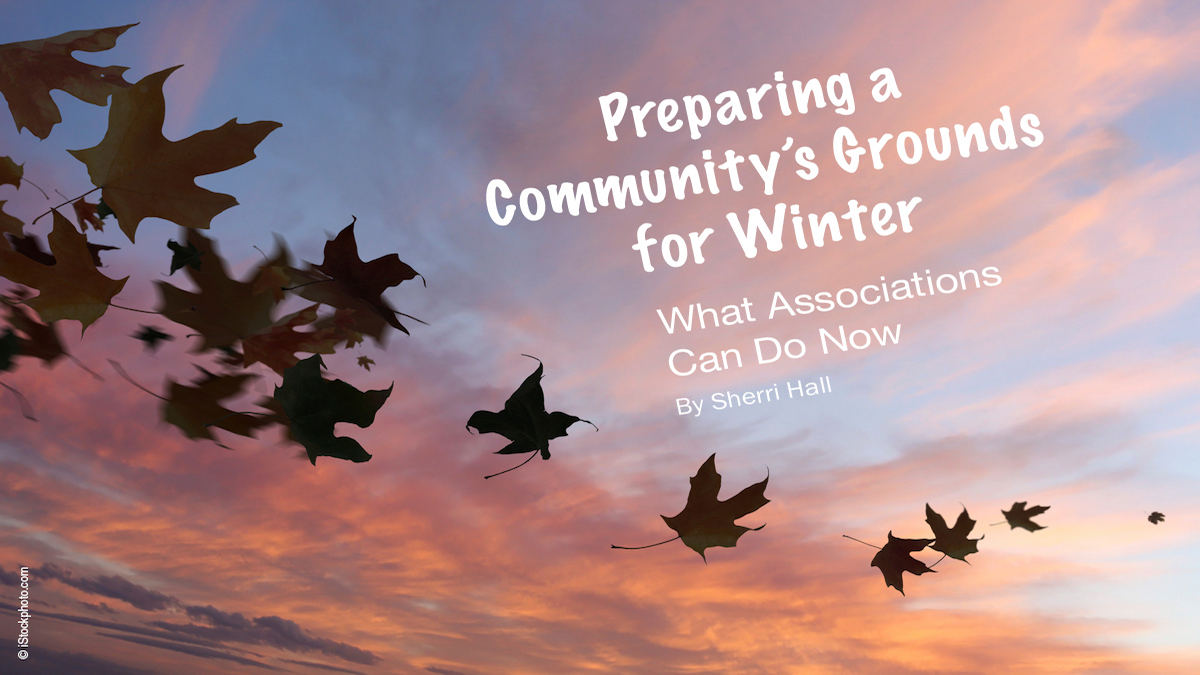
Preparing a Community’s Grounds for Winter: What Associations Can Do Now
Feature Story
Preparing a Community’s Grounds for Winter: What Associations Can Do Now
While it’s true that harsh winter weather, snow plows and ice melting chemicals can cause destruction to a community’s grounds, there are a number of steps associations can take to minimize the damage to their properties.
Making these preparations during the fall season can help alleviate some of the stress faced by associations during the winter months.
According to The Falcon Group Regional Vice Present Steven J. Lang, one of the preparations associations should make in anticipation of winter is getting the landscaping and lawn areas ready for the season. He noted that oftentimes, associations don’t realize that the treatment of sidewalks and roadways can be problematic for landscaping. “You can have issues where salt and ice melting chemicals get into the lawns, planting beds and adjacent areas. This can cause damage and basically destroy those materials,” said Lang.
However, there are treatments that can be done in the fall to prevent this from happening. For example, Lang explained that there are certain fertilizers and other materials that can help offset and prepare those areas for the chemicals that might be placed on the walking surface next to them. He also suggested preparing the mulch beds for the upcoming season. Lang noted that these items are important for an association to consider as part of its landscaping maintenance.
Lang also recommended that associations ensure their irrigation systems are prepared and shut off correctly as well as drained properly. Oftentimes, associations are under the impression this has been taken care of only to find out that there are issues such as leaks when they go to turn those systems back on in the spring, he said.
Protecting asphalt and concrete from snow and plows is also an important task for an association. “The key in my mind is to make sure they are using the right de-icing chemicals,” said Lang. “There are chemicals out there that are better for the environment, pets, pavement and concrete.”
Lang noted that an association should ensure its contractor is not using standard salt or harmful products. In addition, he said the association should talk with its contractor about raising the blades on the plows, which will have less of an impact on the pavement, including driveways.
“It makes sense to do a walkthrough with the contractor before the winter season starts to discuss your concerns and really go through the community to see if the contractor needs to put up any flags to let them know where certain items that will otherwise be covered by the snow are located. Plows can be extremely damaging to granite block curbing, areas with pavers, and driveway entrances, so your snow removal contractor should take care not to damage these materials by having them marked out and setting the height of his plow accordingly,” Lang said.
He also mentioned that some communities have unique circumstances to consider, such as a parking garage or occupied space below a drivable area that may have a waterproofing membrane that must be protected from damage by the plows. These items should also be discussed with the contractor prior to winter.
It is important for an association to be well prepared for the potential problems winter weather can cause within its community. Remaining proactive in the fall to prevent issues in the winter can reduce some of the damage and lessen the overall effects to the association.
Tags: Article
Trackback from your site.